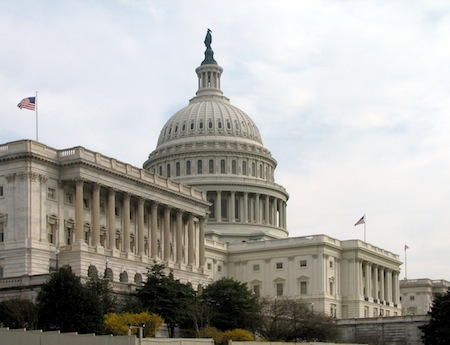House Passes Self-Driving Car Bill
The smarter way to stay on top of the multichannel video marketplace. Sign up below.
You are now subscribed
Your newsletter sign-up was successful

The House has passed bipartisan legislation that turns the key on self-driving cars, including making sure cybersecurity is baked into the new technology.
The SELF DRIVE (Safely Ensuring Lives Future Deployment and Research In Vehicle Evolution ) Act, which passed unanimously, sets up a framework for the National Highway Traffic Safety Administration to adapt federal standards to the development, testing and deployment of self-driving cars, and clarifies the roles of states and localities.
It also makes clear the cybersecurity needs to be an internal component of the new cars.
"A manufacturer may not sell, offer for sale, introduce or deliver for introduction into commerce, or import into the United States, any high-ly automated vehicle, vehicle that performs partial driving automation, or automated driving system unless such manufacturer has developed a cybersecurity plan," the bill says.
That must include a process to identify and mitigate possible vulnerabilities to cyber attack, including malicious commands; an executive or officer responsible for cybersecurity; a way to limit access to the automated systems; and an employee training program to implement and maintain cybersecurity procedures.
Passage of the bill, which still must negotiate a successful route to Senate passage, drew immediate response, mostly positive.
“We applaud the House leadership...for spearheading this bipartisan effort to chart the right approach to this issue," said TechNet President Linda Moore. "We look forward to the introduction of similar legislation in the Senate soon, and ultimately seeing the nation’s first major self-driving vehicle safety law signed by the President during this Congress.... The federal government has a proper role to play in developing uniform standards in areas where it makes sense, ensuring that self-driving cars will be safe for the road."
The smarter way to stay on top of the multichannel video marketplace. Sign up below.
Consumer Technology Association President Gary Shapiro expressed similar sentiments.
"The growing patchwork of legislation and rules across the country is a significant barrier to testing the full potential of self-driving vehicles," Shapiro said. "We appreciate the leadership of the House...in establishing a clear direction about the proper roles of state and federal governments in regulating self-driving cars. CTA looks forward to continuing to work with policymakers to provide the consistency needed for companies to test and deploy this technology.
"As a leading technology provider in the fast-growing market for autonomous vehicles, Intel has supported Congressional efforts to advance key provisions of the SELF DRIVE Act since its inception," blogged Margie Dickman, Intel global director and associate general counsel, automated driving and IoT policy. "We especially commend the Act’s recognition of the important role that technology companies are playing in the development, testing and deployment of autonomous vehicles."
"The sooner the United States has widespread deployment of highly autonomous vehicles, the sooner it can reap its enormous potential benefits to public safety and the economy," said Center for Data Innovation .
The Senate should follow the House of Representatives’ lead and pass the SELF DRIVE Act to secure these benefits as quickly as possible.
But not everyone was giving the House a high five.
“Bipartisanship is worthless when it produces a dangerous bill,” said John M. Simpson, privacy project director at Consumer Watchdog, who was particularly concerned about preempting state safety standards--in favor of federal standards. “Pre-empting the states’ ability to fill the void left by federal inaction leaves us at the mercy of manufacturers as they use our public highways as their private laboratories however they wish with no safety protections at all,” he said.
Contributing editor John Eggerton has been an editor and/or writer on media regulation, legislation and policy for over four decades, including covering the FCC, FTC, Congress, the major media trade associations, and the federal courts. In addition to Multichannel News and Broadcasting + Cable, his work has appeared in Radio World, TV Technology, TV Fax, This Week in Consumer Electronics, Variety and the Encyclopedia Britannica.

